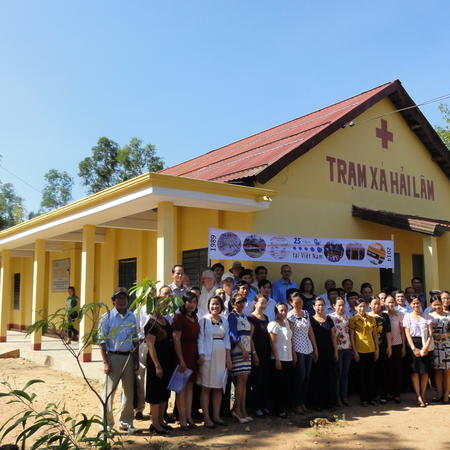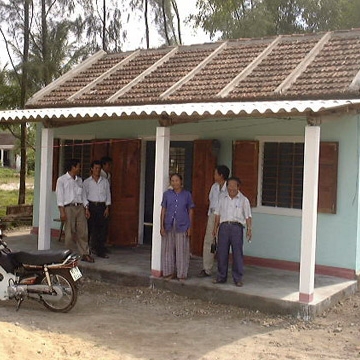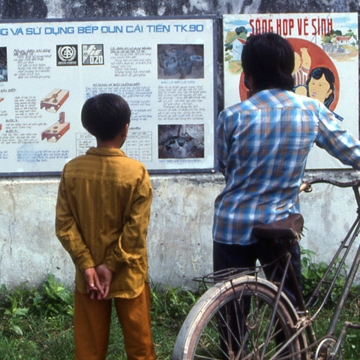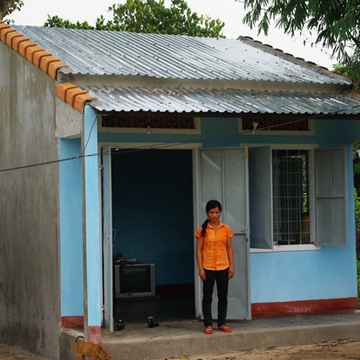Resilience: meaningless jargon or development solution?
Donors, recipient governments and implementing agencies are selling 'resilience' to the public without a clear definition or a money-back guarantee
'Resilience' is probably the sexiest new buzzword in international development. But as its popularity has grown, so has criticism of the use of ill-defined terminology in a sector that claims to be accountable.
Resilience as an idea is not new. It was first used to talk about the ability of an ecosystem to respond to a shock or disturbance by resisting damage and recovering quickly. However, the term began to gain popularity in development after the 2008 food, fuel, and financial crises left people searching for new approaches to tackling poverty.
The British government's Humanitarian Emergency Response Review in March 2011 placed resilience "at the heart of the approach both to longer term development and emergency response", catapulting the word squarely into the mainstream development agenda. "The review [basically] says if we continue as we are, the humanitarian burden will be such that the international humanitarian system will [financially] collapse. The way to deal with that is by 'building resilience'," said Tom Mitchell from the Overseas Development Institute, a development thinktank.
Now, everybody is building resilience, or at least claiming to be. The term has assumed such political and financial clout, whether you're working in family planning or disaster management, it seems as if every funding proposal, every programme, every result has to be seen to be contributing to resilience. Your very survival as an organisation may depend upon it. Consequently, some use the term rather disingenuously, as they try to protect or rebrand their work to access funds.
"Development communications must get rid of meaningless jargon used to gloss over, qualify or even glorify results," said Anika Rabbani, who works in public relations for a major international development organisation.
"We create some of their [beneficiaries] perceived happiness, empowerment and success, by donning powerful words belonging to the 'resilience' category. Some of these words are so strong and serious that they appear to cloak the matter in an aura of 'it needs no further questioning'," she added.
Resilience also poses a challenge as a term in its own right. Instead of bringing clarity to the table as envisaged, it has brought utter confusion. Firstly , nobody really knows what resilience means, or perhaps more accurately, everybody has a different understanding of it.
Second, without an agreed working definition, resilience as an output cannot be measured and that brings lexical heavy weights, such as accountability, into the ring.
"Organisations are having to take on the idea of resilience and define it for themselves. There have been some moves to standardise the measurement of resilience within the UN system, but to date the agencies are just going off in their own direction.
Nobody has yet produced a compelling assessment framework for measuring progress," said Mitchell.
Nowhere is this more obvious than in the field of disaster risk reduction and climate change adaptation, where the proof of the pudding is in the eating. Typically, organisations operating in this field need to measure something that hasn't happened yet, and might never happen – a nightmare to model. Indeed, many organisations appear to be avoiding the responsibility altogether.
A 2012 report, Resilience, Risk and Vulnerability at Sida, by the Swedish International Development Cooperation Agency, described resilience as a "new type of result" and said that the "need to choose different indicators for measuring resilience [per se], in order to understand if adaptation has been achieved, seems not to have been considered in most planning processes".
Yet, donors, recipient governments and implementing agencies continue to sell the concept of resilience to the public with no money-back guarantee. Everyone recognises the need for more accountability, but claims to have hands tied financially. In October 2012, Groupe Urgence Réhabilitation Développement staged a conference titled Resilience – buzzword or useful concept?. It brought together 40 experts from UN agencies, the Red Cross, NGOs and other research institutes, and concluded that "as a sector, we need to do better in terms of contributing to the outcome of resilience, but not necessarily more (and [as] there will not be more money [funding])." Hard to believe considering that the UK's overseas development assistance alone for 2012-13 is estimated to be £11.3bn (excluding conflicts).
So how can we do better? The Food and Agriculture Organisation of the UN has already published indicators to measure resilience, though these seem to be geared more towards vulnerability than resilience per se. The UN's Development Programme said it is "in the process of developing a 'climate, environment and disaster vulnerability index' – a composite index to measure vulnerability as well as resilience".
Meanwhile, inter-agency groups are beginning to figure out the characteristics of resilience in disaster management and how everything might fit within the Hyogo Framework of Action, the first internationally accepted framework for disaster risk reduction.
All this effort may be in vain because of the rapidly changing jargon scene. Today, those in the field of development have to deal with yet another buzzword, used by none other than the British prime minister. David Cameron conveniently sums up all the development rhetoric that came before with the mother of all buzzwords – "the golden thread".
Again, it lays out nicely what we want: transparency, openness, accountability, empowerment to name a few, but not how to get there or how to measure it. Perhaps a more apt buzzword for this year could be plain and simple: evidence.
This content is brought to you by Guardian Professional











